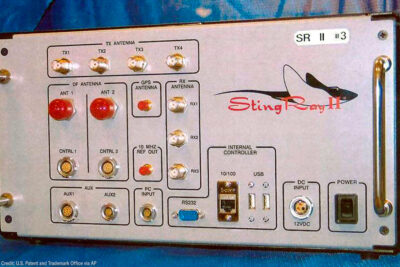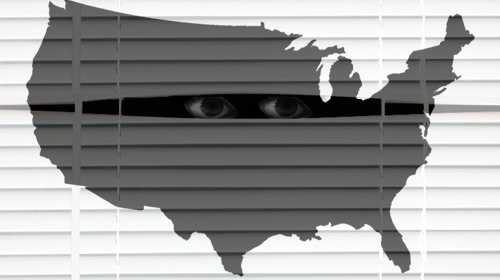Stingray Tracking Devices
The ACLU works in courts, legislatures, and communities to defend and preserve the individual rights and liberties that the Constitution and the laws of the United States guarantee everyone in this country.

Stay informed about our latest work in Stingray Tracking Devices.
By completing this form, I agree to receive occasional emails per the terms of the ACLU's privacy statement.
The Latest

ACLU v. CBP - FOIA Case for CBP and ICE Records Related to the Use of Cell-Site Simulator Technology

ICE Using Powerful Stingray Surveillance Devices In Deportation Searches


ACLU Seeks Documents on ICE’s Use of Cell Phone Trackers

U.S. v. Prince Jones – Challenge to Police’s Warrantless Use of ‘Stingray’ Cell Phone Tracker
Explore More
What's at Stake
Stingrays, also known as “cell site simulators” or “IMSI catchers,” are invasive cell phone surveillance devices that mimic cell phone towers and send out signals to trick cell phones in the area into transmitting their locations and identifying information. When used to track a suspect’s cell phone, they also gather information about the phones of countless bystanders who happen to be nearby.
Law enforcement agencies all over the country possess Stingrays, though their use is often shrouded in secrecy. The ACLU has uncovered evidence that federal and local law enforcement agencies are actively trying to conceal their use from public scrutiny, and we are continuing to push for transparency and reform.
In order to protect both privacy and First Amendment rights, the law needs to keep up with technology. The government must be open about the use of these powerful tools and put rules on their usage in place to protect people’s Fourth Amendment rights and prevent abuse.
Stingrays, also known as “cell site simulators” or “IMSI catchers,” are invasive cell phone surveillance devices that mimic cell phone towers and send out signals to trick cell phones in the area into transmitting their locations and identifying information. When used to track a suspect’s cell phone, they also gather information about the phones of countless bystanders who happen to be nearby.
Law enforcement agencies all over the country possess Stingrays, though their use is often shrouded in secrecy. The ACLU has uncovered evidence that federal and local law enforcement agencies are actively trying to conceal their use from public scrutiny, and we are continuing to push for transparency and reform.
In order to protect both privacy and First Amendment rights, the law needs to keep up with technology. The government must be open about the use of these powerful tools and put rules on their usage in place to protect people’s Fourth Amendment rights and prevent abuse.
